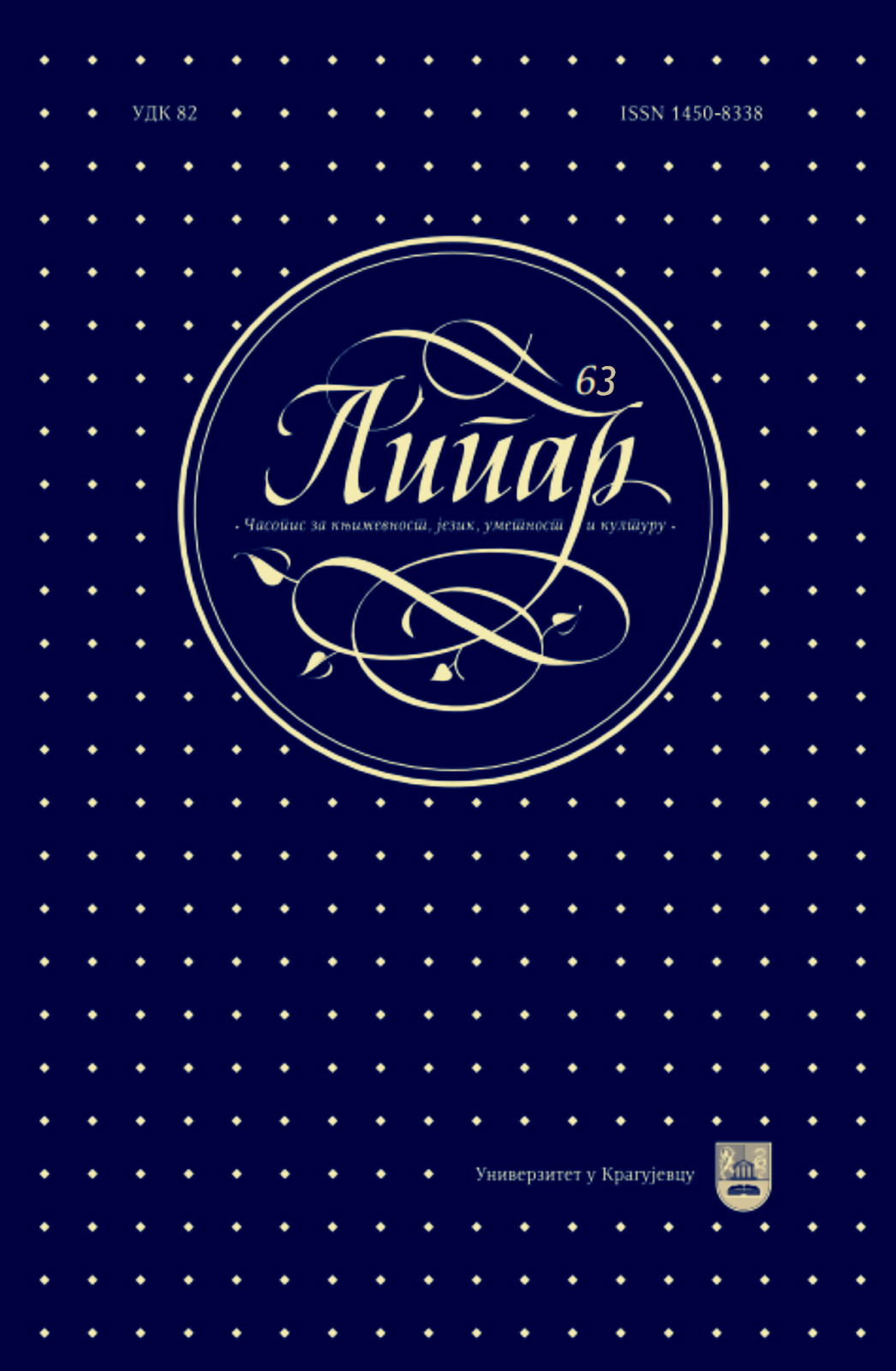MOONLIGHT AND CELEBRATION IN THE PINTER
CANON
MOONLIGHT AND CELEBRATION IN THE PINTER
CANON
Author(s): Naoko YagiSubject(s): Theatre, Dance, Performing Arts, Language and Literature Studies, Fine Arts / Performing Arts, Studies of Literature, Other Language Literature, Philology
Published by: Универзитет у Крагујевцу
Keywords: Harold Pinter; Moonlight; Celebration; dialogue; soliloquy
Summary/Abstract: Drawing upon Bert Cardullo’s argument in his Brecht, Pinter, and the Avant-Garde that Harold Pinter’s later, non-political plays strike us as being “tired and repetitive [. . .] as if they’re telling us something that we already know” (Cardullo 2008: 72), this essay first likens the impact of Pinter’s earlier plays to the unchained and enlightened person in Plato’s “cave” allegory helping the rest of the cave dwellers unchain themselves and then asks in what manners Pinter’s later, non-political plays pound on our doors, announcing the arrival of what “we already know.” The essay focuses on two of Pinter’s post-1990 plays, Moonlight and Celebration, to delve into that question. Paying particular attention to the fact that those two plays call for ensemble acting, the essay looks at the ways in which characters’ dialogues and soliloquies interact with their physical presence and movements onstage. At the same time, the essay traces examples taken from the play-texts of Moonlight and Celebration back to some of the stage directions as well as the characters’ lines in Pinter’s pre-1990 plays—and, for comparison, also in his pieces that immediately precede the two plays in question. The essay concludes by referring to Hans-Thies Lehmann’s definition of “dramatic theatre” and asserting that, unlike Samuel Beckett, Pinter stuck to his version of “dramatic theatre” rather than moving on to the realm of “postdramatic theatre.”
Journal: Липар - часопис за књижевност, језик, уметност и културу
- Issue Year: XVIII/2017
- Issue No: 63
- Page Range: 83-97
- Page Count: 15
- Language: English

